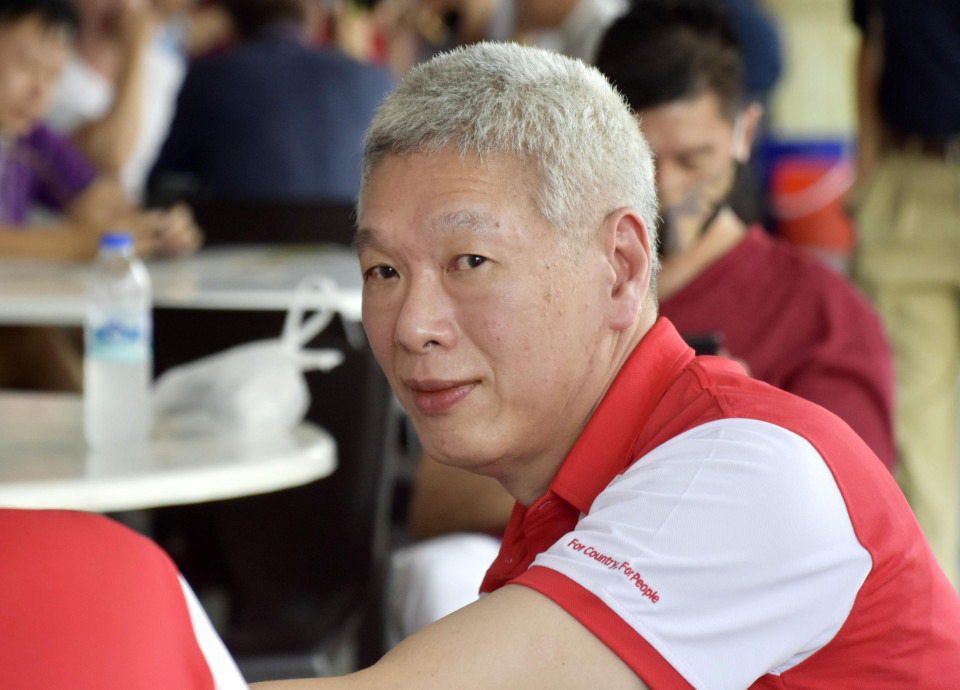The estranged younger brother of Singapore Prime Minister Lee Hsien Loong said he has effectively self-exiled in Europe and is “unlikely to return to Singapore” due to fear of political persecution.
Lee Hsien Yang said during a phone interview with Kyodo News Tuesday he has been considering running in the presidential election that is to take place by September.
But the younger son of Singapore’s first prime minister Lee Kuan Yew alluded to being close to giving up on contesting the upcoming election due to the latest wave of verbal attacks against him.
“I left Singapore in June last year. I’m in Europe. I prefer not to identify more clearly where I am,” he said in the 45-minute interview.
The 65-year-old has been urged to run in the election by “many people, some I know very well, some who I don’t know,” adding that he takes those voices into account.
But he said the attacks make the situation surrounding his potential candidacy “complicated.”
“I would put myself at risk if I were to return to Singapore at this time,” he said.
Singapore’s Senior Minister Teo Chee Hean said last week that Lee Hsien Yang left Singapore in June last year amid police investigations relating to judicial proceedings over his father’s will.
Teo said in a written answer to a question in parliament about the accuracy of an e-book focusing on the first premier’s will that the premier’s brother and his wife, a lawyer, “had lied under oath” and police had opened an investigation into the couple “for potential offenses of giving false evidence in judicial proceedings.”
In recent days, local media reported the probe is likely to disqualify him from the stringent character integrity criteria imposed on presidential candidates. He has rejected the accusations.
“What’s sad is I think as a result of this, I’m unlikely to return to Singapore, at least for the foreseeable future,” he said. “I believe that in Europe, there’s rule of law and it’s not so straightforward for the Singapore authorities to attack me and there are many ways to defend myself.”
The Lee siblings have been embroiled in a bitter feud over the fate of their family home in a prime district of the city-state. The disagreement erupted soon after the death in 2015 of their father who had served as prime minister for some three decades and is revered and credited for the role he played in the Singapore success story.
The family spat later spilled over into the political domain.
The younger Lee brother was a corporate high-flyer who shunned politics but he became one of his brother’s harshest critics on social media and even joined the fledgling opposition Progress Singapore Party just before the 2020 general election, although he did not run in the contest.
During the interview, he also commented on the leadership succession in Singapore and fragmentation within the ruling party.
He said any Lee family members should not take a future political leadership role but “the presidential election is slightly different” as “it’s apolitical, theoretically.”
“Part of the problem with the presidential election is they made the rules so tight (that) actually very few people are qualified to run,” he said. “I was one of the few people qualified, and as far as I could see that seems to be the case, though some experts now say I don’t qualify.”
Singapore’s presidential post is largely ceremonial but the role has been expanded to have the power to veto government budgets to safeguard accumulated reserves and appointments of senior officers for key public services.
The bar has been set very high for candidates to qualify as they are required to have at least served as a Cabinet minister or in an equally high-profile post in the public sector or helmed a large private company with at least S$500 million (US$369 million) in shareholder equity.
Leadership succession is currently an important issue in Singapore as Prime Minister Lee, 71, had said he planned to step down by age 70.
Last year, Finance Minister Lawrence Wong, who was once Prime Minister Lee’s principal private secretary, was chosen to be the leader of the ruling party’s fourth generation, or 4G team, and his future successor.
Prime Minister Lee has served as premier for nearly two decades, having taken the reins in 2004 from his predecessor Goh Chok Tong who assumed the premiership in 1990 when Lee’s father stepped down as part of a planned leadership succession.
Source : KyodoNews


